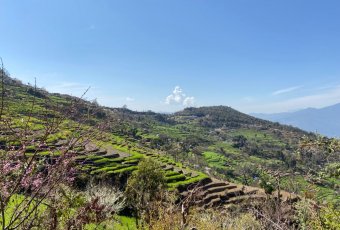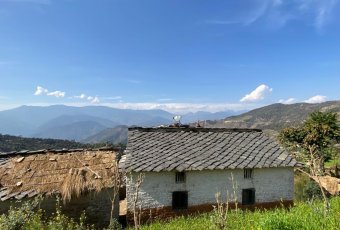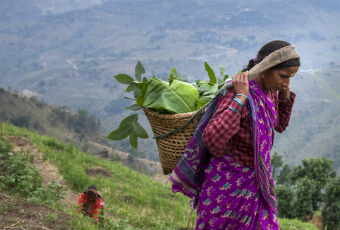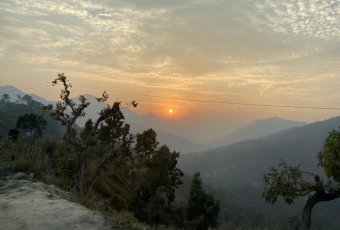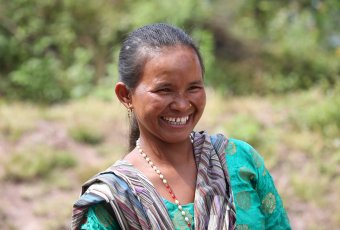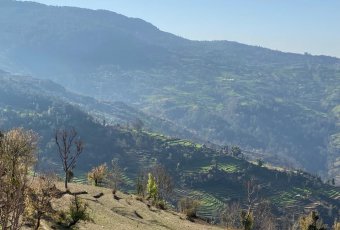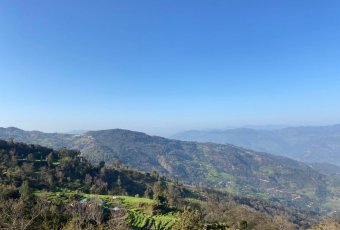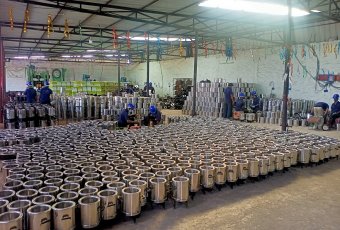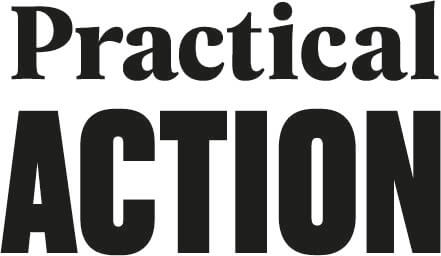The context
Bordered by China in the North and by India on the rest of its territory, Nepal has fascinated many travellers for its natural beauty and diverse landscapes. With its fertile plains and subalpine forested hills, Nepal is also the country of eight of the world’s ten tallest mountains, including the highest point on Earth, Mount Everest.
Over the past 20 years, the local Government has put in tremendous efforts to provide its population with improved health, access to knowledge and a decent standard of living. But household air pollution remains the third major cause of early mortality across the country. In Nepal, 70% of the population cook on inefficient stoves using firewood, cattle dung, and agricultural waste. Inefficient cooking comes with heavy workload for women in rural areas who take care both of their land and families.
The project
To support the local Government’s strategy to transition a majority of rural families to efficient cooking, Livelihoods launched in 2022 a 10-year initiative to equip 75,000 rural families in the provinces of Lumbini and Sudurpaschim, in the North-Western region. The project is implemented together with Practical Action, an experienced and international NGO which supports rural communities across various areas such as clean energy, water, waste, and sanitation, climate, sustainable agriculture, market systems and gender issues. In Nepal, Practical Action has set providing rural communities with access to clean energy as a priority mission.
Together with Practical Action, Livelihoods will focus on three key activities to reach 75,000 rural families equipped with a clean stove. The project will raise awareness about the health and environmental benefits of clean cooking amongst households. It will structure a reliable network of partners for the promotion and distribution of clean stoves to the most isolated families. From a financial perspective, the project will help bring access to small credits to help them purchase a stove at 50% its price. Each beneficiary household will be accompanied over 10 years to measure the stoves efficiency, evaluate whether their use is adapted to the local needs and make sure they are reliable in the long run.
The social, environmental & economic impacts
In Nepal, 90% of the rural population is cooking indoors[1]. Accelerating the transition to clean stoves will significantly improve the health conditions of the beneficiary families, as significantly fewer toxic smokes will be emitted. The model of the stove distributed within the project is a Tier-1, meaning it will bring 30 to 40% thermal efficiency. The clean stoves will also help reduce deforestation by up to 60% and the project will help save 1.7 million tons of CO2 over 10 years. Manufactured by local partners, the project will boost job opportunities and generate more than 450 direct and indirect jobs, for the promotion and distribution of 75,000 clean stoves in rural areas.
The project will also rely on an existing and powerful collective approach in the villages to achieve cookstoves distribution. On the forest level, community groups are in place, with representatives from all village households. With a common mission to contribute to manage the country’s forests, these communities have put it tremendous effort and helped decelerate deforestation in Nepal: the country’s forest coverage reaches 45% today versus 25% before. The project will rely on existing women’s and mothers’ groups at village level, who have the essential role of distributing health services (e.g., birth control pills, iron supplements…) and raising awareness about community health.
Our partner
Practical Action benefits from more than 40 years of experience working hand in hand with rural communities. It is an international NGO which has been operating in Nepal since 1979. With 70% of the local population still depending on inefficient cooking solutions to feed their families, Practical Action has set access to clean rural energy as a top priority. The NGO has developed a robust market-based approach to distribute efficient stoves in rural areas at large scale, by strengthening its network of manufacturers, financial institutions, local distributors… to reach the most isolated families.
Learn more about Practical Action
[1] Source : World Bank



